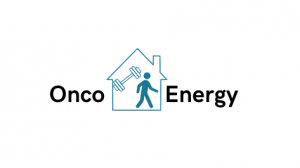OncoEnergy
Effect of home-based preoperative exercise training on quality of life after lung cancer surgery
 Lung cancer is the most mortal type of cancer globally, with numbers in 2020 reaching 1.8 million deaths worldwide. Surgical resection is the therapeutic option which offers the best prognosis to lung cancer patients, with an overall survival of 74% and 62% at 3 and 5 years after surgery, respectively. However, surgery has a detrimental impact on health-related quality of life, with 100% of lung cancer patients being concerned about the limitations in their physical function and 96% about the levels of fatigue and pain after lobectomy Preoperative exercise training has been implemented as a prehabilitation strategy, showing to optimize the recovery of functional capacity after lung cancer resection. However, despite these positive findings there is a lack of evidence about its effect on postoperative health-related quality of life. Furthermore, preoperative exercise interventions have been mostly conducted in hospital, which could limit patient’s adherence because problems related to transportation were identified as a major barrier to participation in prehabilitation to oncological surgery. The main purpose of this research project is to assess the feasibility and the effects of a preoperative home-based exercise program on health-related quality of life after lung cancer surgery.
Lung cancer is the most mortal type of cancer globally, with numbers in 2020 reaching 1.8 million deaths worldwide. Surgical resection is the therapeutic option which offers the best prognosis to lung cancer patients, with an overall survival of 74% and 62% at 3 and 5 years after surgery, respectively. However, surgery has a detrimental impact on health-related quality of life, with 100% of lung cancer patients being concerned about the limitations in their physical function and 96% about the levels of fatigue and pain after lobectomy Preoperative exercise training has been implemented as a prehabilitation strategy, showing to optimize the recovery of functional capacity after lung cancer resection. However, despite these positive findings there is a lack of evidence about its effect on postoperative health-related quality of life. Furthermore, preoperative exercise interventions have been mostly conducted in hospital, which could limit patient’s adherence because problems related to transportation were identified as a major barrier to participation in prehabilitation to oncological surgery. The main purpose of this research project is to assess the feasibility and the effects of a preoperative home-based exercise program on health-related quality of life after lung cancer surgery.
Keywords: Lung Cancer, Prehabilitation, Quality of life
Duration: 48 months (2020-2024)
Principal Investigator: Pedro Machado
Research Team
Joana Cruz;
Sara Pimenta;
Ana Luís Garcia;
Tiago Nogueira;
Sónia Silva;
Bárbara Oliveiros;
Raul A. Martins.
Institutional affiliation
Center for Innovative Care and Health Technology (ciTechCare), School of Health Sciences of the Polytechnic of Leiria, Leiria, Portugal;
University of Coimbra, Research Unit for Sport and Physical Activity (CIDAF, UID/PTD/04213/2019), Faculty of Sport Sciences and Physical Education, Coimbra, Portugal;
Physioclem, Physical therapy clinics, Alcobaça, Portugal;
Thoracic Surgery Unit, Portuguese Oncology Institute of Coimbra, Coimbra, Portugal;
Pulmonology Department, Leiria Hospital Center, Leiria, Portugal;
University of Coimbra, Laboratory of Biostatistics and Medical Informatics (LBIM), Faculty of Medicine, Coimbra, Portugal;
University of Coimbra, Coimbra Institute for Clinical and Biomedical Research (iCBR), Faculty of Medicine, Portugal;
University of Coimbra, Institute for Biomedical Imaging and Translational Research (CIBIT), Coimbra, Portugal.
Institutional partners
Faculdade de Ciências do Desporto e Educação Física da Universidade de Coimbra;
Instituto Português de Oncologia de Coimbra;
Centro Hospitalar de Leiria – Hospital de Santo André;
Hospital Distrital de Santarém;
Hospital Distrital da Figueira da Foz.
Funding:
FCT (REF UIDB/05704/2020).
Mecenato científico: Physioclem e ImoNazaré
